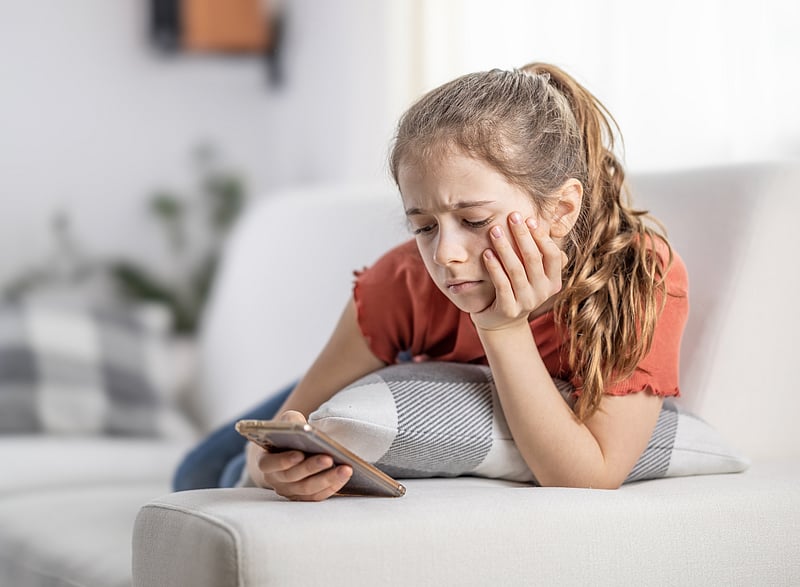Get Healthy!

- Cara Murez
- Posted May 23, 2023
U.S. Surgeon General Warns That Social Media Can Harm Teens' Mental Health
Social media presents a "profound risk"to young brains, U.S. Surgeon General Dr. Vivek Murthy warned on Tuesday.
In a report, Murthy warned about the risks of social media use for young people and called on policymakers, tech companies, researchers and parents to "urgently take action."
"There are ample indicators that social media can also have a profound risk of harm to the mental health and well-being of children and adolescents,"Murthy said.
The full effect of social media isn't well understood, he noted.
"Adolescents are not just smaller adults,"Murthy told The New York Times. "They're in a different phase of development, and they're in a critical phase of brain development."
Among the concerns are that if kids are using social media frequently they may actually be altering their developing brains, specifically in the amygdala and the prefrontal cortex. These are important for emotional learning, emotional regulation, impulse control and social behavior. This "could increase sensitivity to social rewards and punishments,"the report stated.
Reaction to the report was enthusiastic.
"Today's children and teens do not know a world without digital technology, but the digital world wasn't built with children's healthy mental development in mind. We need an approach to help children both on and offline that meets each child where they are while also working to make the digital spaces they inhabit safer and healthier. The Surgeon General's Advisory calls for just that approach,"Dr. Sandy Chung, president of the American Academy of Pediatrics, said in a news release from Murthy.
The report comes at a time when there is an ongoing mental health crisis among U.S. teens. The American Psychological Association has recommended that parents monitor teen social media usage, the Times reported.
Social media can have both positives and negatives for teens, including connection with others on the plus side and "extreme, inappropriate and harmful content,"including self-harming behavior, as a clear downside.
"In early adolescence, when identities and sense of self-worth are forming, brain development is especially susceptible to social pressures, peer opinions and peer comparison,"the report stated.
As many as 95% of teens use at least one social media platform, according to the report. More than one-third use it "almost constantly,"the Times noted.
Most platforms limit usage to age 13 and up, but nearly 40% of kids aged 8 to 12 use social media, according to the report.
"Our children have become unknowing participants in a decades-long experiment,"Murthy wrote in the report. "It is critical that independent researchers and technology companies work together to rapidly advance our understanding of the impact of social media on children and adolescents."
Meanwhile, the burden has fallen largely on kids and parents, Murthy said.
"That's a lot to ask of parents -- to take a new technology that's rapidly evolving and that fundamentally changes how kids perceive themselves," and ask parents to manage it, Murthy told the Times. "So, we've got to do what we do in other areas where we have product safety issues, which is to set in place safety standards that parents can rely on, that are actually enforced."
More information
The American Psychological Association has more on adolescents and social media.
SOURCES: "Social Media and Youth Mental Health," U.S. Surgeon General's Advisory, May 23, 2023; The New York Times
